FrontLines: What is the most rewarding aspect of your job?
Carleene Dei: Even after experiencing a 7.0 earthquake, Hurricane Tomas, and now a cholera epidemic, I am proud to be a part of the USG effort that is providing vital services to Haitians, in close collaboration with our Haitian partners. We're saving lives every day and working with the government of Haiti, and with the new Interim Haiti Reconstruction Commission to rebuild. Interestingly, it is the small successes that are most rewarding. We work with an NGO that provides unemployed youth with basic literacy and job skills. My hero is a young woman who was taught to be a welder—traditionally a man's occupation. She is now a respected professional in a town that was devastated by the earthquake. Her skills are making an important contribution to the rebuilding effort.
FL: How do you deal with the hazards posed working in a critical priority country? That is, what helps you to work in an environment amid high threats and high security?
CD: There is so much to do and so little time to do it that one simply does not have time to brood over the dangers and the "what ifs." Instead, I focus on prioritizing and completing those critical tasks—strategizing, designing, contracting, and implementing programs that must be accomplished in order to turn the tide.
FL: What has been the most difficult experience at your job?
CD: Experiencing the earthquake 24 hours after arriving in the country and then living through dozens of aftershocks. I developed a noticeable tremor in my right hand that lasted for almost six months. We also have an acute shortage of staff that, thankfully, is now being addressed. With luck we should have a full complement on board by summer.
FL: How has your work with USAID changed the way you view the world? Has your view of the United States and its relationship to other countries changed?
CD: I now firmly believe that under-development and poverty is as much a lack of resources as it is an absence of political will. Leaders do not want to change, and people rarely have the wherewithal to demand change. Of course, at some point in time, something gives. Our agency's essential contribution to the change process is to lend a helping hand to any and everyone who wants to make things better. I believe that in Haiti, the stars—resources, people, and a strong desire to "build back better," for example—will make a difference. We have already observed a marked improvement in the quality of the government of Haiti's response to the recent hurricane and to the current cholera epidemic. Finally, I have learned that it is the commitment of my colleagues—Americans and Foreign Service Nationals—that ultimately ensures the success of our agency's programs.
FL: What is your favorite thing to do in your residence country on your days off?
CD: I read good fiction every chance I get. It allows my brain to cool off and to return refreshed and renewed to the issues at hand.
FL: What is the one thing you took for granted in the United States that you no longer would?
CD: I was born in Jamaica, an island that is designated "a developing country," so I do not take things for granted.
FL: What would you say is your "grain of sand"; what you will leave behind as your most important accomplishment in the country you served?
CD: I would like my epitaph to read: "She always did her best."







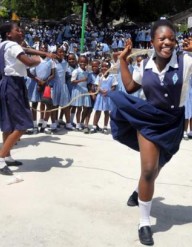

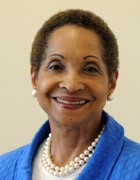
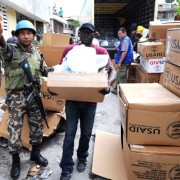
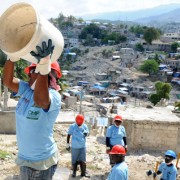
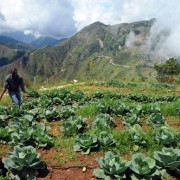
Comment
Make a general inquiry or suggest an improvement.